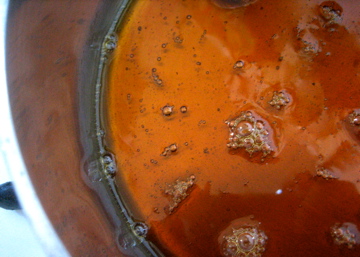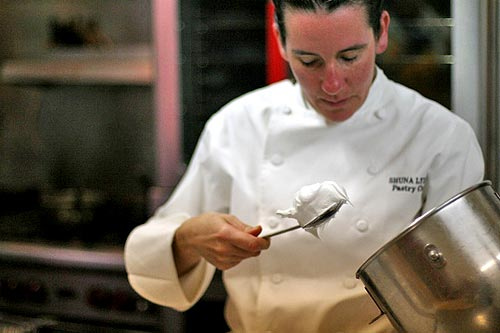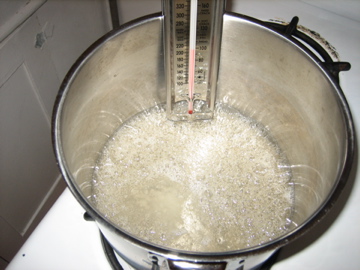The classes I am teaching are "foundation classes." They are meant to start people at the beginning, for comfort, knowledge and ease. I may, at some point, teach more advanced classes, but it is my experience that most bakers, even good home bakers, only know the hows and not the whys of baking foundation principles/instructions."

Does this clear things up a bit? I hope so, I did not mean to confuse or lead astray.
When one understands the whys in conjunction with the hows, one develops a more thorough understanding of a subject. Many people can follow a recipe. But what do we do when:
a. we see a blatant error in the text?
b. are going merrily along following a recipe and it does not appear to be producing said results?
c. have made something over and over and this time it doesn't work?
d. want to substitute ingredients, lower sugars or increase volume?
e. are attempting to make a recipe in a new environment/oven/kitchen/geographical location?
f. Any, or all of the above??
Baking is a science, yes. But it is also about courage and intuition and experiment and craft. It's understanding how each ingredient plays a role in a play, or on a team. Why baking soda this time and baking powder the next? Why am I separating the eggs? How come I'm being told, in no uncertain terms, not to over-mix? Why all purpose flour for this cake and cake flour for that cake? Do I really need to sift?
And on and on and on. Right?
Caramel is a really interesting substance and ingredient. Like glass, it goes from solid molecule, to hot liquid, back to solid again. It sweetens in a deep way. It softens, in a mysterious way. It lowers freezing temperatures, smoothes out batters and custards, and makes candy chewy, in the darndest ways. And it's a fantastic cooking vehicle.
It is my goal, with these classes I have set forth, to help you to feel more comfortable with ingredients and methods and principles, so that you can go back into your home kitchen with some Foundation Basics. If a person can conjure the whys of baking, they are more likely to be able to figure out how to make changes immediately or feel confident taking risks.
My cookie classes covered creaming, air incorporation, leaveners and the importance of ingredients in a simple, uncomplicated baked good. The pate a choux class thoroughly explained the hows and whys of eggs, a twice cooked dough and piping. The pie dough class will explain the tenuous relationship between butter, flour/gluten, and what the oven does when it's introduced to these delicate structures. With caramel I set you forth to both be afraid (it's the most dangerous substance in any kitchen, professional or home) and comfortable with melting sugar, mounting it with various fats, and how it changes baked goods/sauces it gets added to. A class on custards will focus on the egg as it can be manipulated when you know exactly the light hand in which to treat it.
Interested in taking one of my Baking Foundation classes?
Follow this link to Eggbeater and send me an email.
Come one, come all, come hungry to learn.


